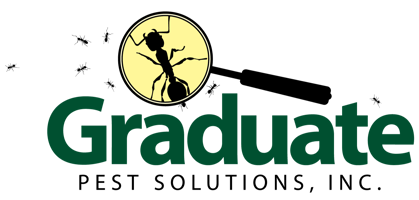Recognizing the Need for Pet-Friendly Rodent Control
When faced with a mouse problem, the safety of your pets becomes a top concern. Traditional methods of rodent control might be effective, but they often pose significant risks to our furry friends. As a responsible pet owner, it's essential to balance effective pest management with the safety of your pets. Understanding the interplay between these two priorities is crucial in ensuring a healthy environment for all household members, both human and animal.
A mouse problem not only threatens your home’s hygiene but can also lead to structural damages and health hazards. While the urgency to address such problems is clear, traditional rodenticides can inadvertently harm your pets if not used with caution. This risk underscores the importance of seeking pet-friendly solutions that effectively manage the rodent population while keeping your pets out of harm’s way.
Understanding the Risks of Traditional Rodenticides
Rodenticides, though effective, come with a set of risks that are particularly concerning for pet owners. These poisons are designed to be lethal, which means they can be just as harmful if ingested by non-target animals like pets. The primary danger lies in the active ingredients, which can cause severe health issues ranging from internal bleeding to neurological problems.
Pet owners must be aware of how these substances work and the potential dangers they pose. Accidental ingestion can occur easily if rodenticides are not properly secured, leading to symptoms such as lethargy, vomiting, or even more severe reactions. Understanding these risks is the first step towards implementing safer rodent control methods in your home.
Utilizing Tamper-Resistant Bait Stations
Tamper-resistant bait stations offer a strategic solution to the dilemma of using rodenticides in a pet-friendly manner. These stations are designed to house the poison securely, making it challenging for pets and children to access while still allowing rodents to enter. This design minimizes the risk of accidental ingestion by non-target animals, providing peace of mind for pet owners.
When using bait stations, it is crucial to place them strategically around your home. Ideally, they should be located in areas where mice frequent but are out of reach of pets. This approach not only protects your pets but also enhances the effectiveness of the rodenticides by targeting the problem areas directly. Additionally, opting for high-quality, sturdy bait stations further reduces the risk of tampering by curious pets.
Exploring Pet-Safe Professional Pest Control Options
In situations where DIY methods fall short, hiring a professional pest control service can be a wise decision. Many pest control companies now offer pet-safe options that are specifically designed to minimize risks to pets. These professionals can assess your unique situation and provide tailored solutions that address the problem effectively while keeping your pets safe.
Communicating with pest control specialists about any pets or small children in the home is vital. A knowledgeable technician will be able to recommend specific strategies, such as using pet-safe products or advising temporary removal of pets during treatment. By leveraging the expertise of professionals, you can ensure a comprehensive and safe rodent control plan.
Identifying Signs of Rodenticide Poisoning in Pets
Despite best efforts, accidents can happen. It's important for pet owners to be vigilant and aware of the signs of rodenticide poisoning in pets. Symptoms can vary depending on the type of poison ingested but commonly include lethargy, vomiting, internal bleeding, and neurological symptoms. Early detection and immediate veterinary care are crucial in mitigating the effects of poisoning.
Should you suspect that your pet has ingested rodenticide, taking swift action is essential. Contact your veterinarian immediately or call a pet poison hotline for guidance. Providing the vet with specific information about the rodenticide used can help streamline treatment and improve outcomes. Being prepared and informed can make all the difference in protecting your pet's health.
Implementing Preventative Measures for a Pest-Free Home
Prevention is always better than cure, and this adage holds true for managing mouse problems as well. Implementing preventative measures can significantly reduce the likelihood of a rodent problem. Simple steps such as sealing entry points, maintaining cleanliness, and eliminating food sources can go a long way in deterring mice from entering your home.
Regular inspections and maintenance are also key components of a successful prevention strategy. Identifying potential vulnerabilities early allows for timely intervention before an problem takes hold. Furthermore, incorporating natural deterrents and traps into your routine can provide an added layer of protection without compromising your pet's safety.
In conclusion, managing mice problems while ensuring pet safety is a balancing act that requires careful planning and informed decision-making. By understanding the risks of traditional rodenticides, utilizing tamper-resistant bait stations, exploring pet-safe professional options, and implementing preventative measures, you can effectively keep your home rodent-free without endangering your beloved pets.
Our team at Graduate Pest Solutions specializes in prevention. Call us at 413-566-8222 or contact us with any questions or if you are experiencing a pest problem. We have the knowledge and service necessary to help keep your home and workplace pest-free!
YOU MAY ALSO LIKE
These related articles

